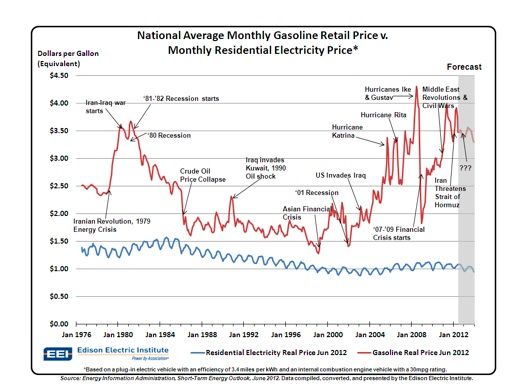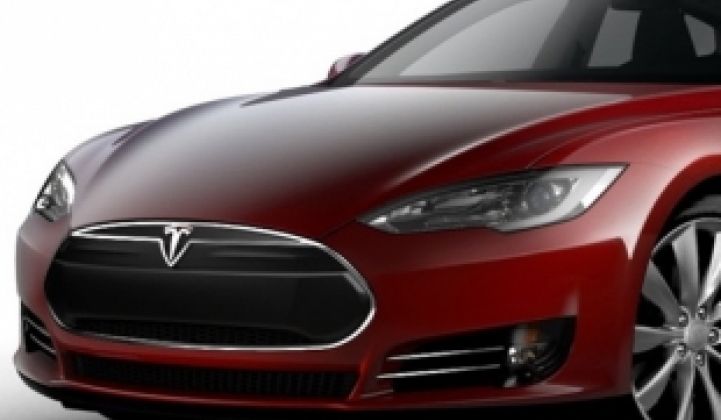It's a lawyer vs. lawyer showdown on electric vehicles.
Last week, we ran a perspective piece from John Petersen which suggested that "a grid-powered electric vehicle might make individual drivers feel warm and fuzzy about themselves, but from a public policy and resource-conservation perspective, it’s the most wasteful plan ever devised."
This week we hear from NRDC attorney Max Baumhefner with a rebuttal.
***
I would like to debunk some myths about electric cars. Longtime critics have argued there will not be enough materials to build batteries for both electric and hybrid vehicles, categorically dismissing electricity as a transportation fuel.
The good news is that there is no shortage of the materials needed to make advanced vehicle batteries. A recent article in the Journal of Industrial Ecology about global lithium reserves concludes, “even with a rapid and widespread adoption of electric vehicles powered by lithium-ion batteries, lithium resources are sufficient to support demand until at least the end of this century.” Another analysis of the trade constraints associated with the global lithium market came to a similar conclusion, and noted that even a “five-fold increase of lithium price would not impact the price of battery packs.”
Furthermore, companies like Simbol Materials are already finding resourceful ways to acquire lithium by harvesting materials from the brine of geothermal power plants so no mining is required. Innovation will also be applied to advanced battery recycling. It is worth noting that conventional lead-acid car batteries are consistently the most recycled product for which the EPA provides data, with a recycling rate of 96 percent.
Bottom line for consumers: there will be enough materials to make batteries for a variety of cars and trucks.
In fact, we are already witnessing a proliferation of efficient vehicles, both conventional and electric. In just the last three years, the number of efficient gas-powered cars and trucks has doubled, and, by the end of this year, there will be over a dozen models available with the ability to plug in and drive gas-free. These include pure electric vehicles with ranges between three and ten times what the average American drives in a day, and plug-in hybrids that use electricity for daily driving and become efficient hybrids for longer trips. The market for clean vehicles will continue to expand, thanks to clean car standards recently adopted in California and proposed national fuel standards -- the most important actions in a generation to cut pollution from cars and reduce dependence on oil. NRDC advocated strongly for both of these landmark policies.
The opportunity to drive right past the gas station and refuel at home is real, making electricity a viable and cleaner alternative to oil. A recent report by the Union of Concerned Scientists reveals that nearly half of Americans live in areas where plug-in cars are much cleaner than even the most efficient hybrids today and that electric cars are always significantly better than the average gasoline vehicle. The UCS report also notes that the environmental performance of electric cars is expected to improve significantly as the electrical grid becomes cleaner. In fact, 29 states already require increasing amounts of renewable generation from resources such as wind and solar. When charged with electricity from such sources, plug-in vehicles operate nearly emissions-free.
Tens of thousands of Americans are already driving a variety of cars that plug in to take advantage of a cleaner domestic fuel at a price that is consistently cheaper than gasoline, as shown in the chart below from the Edison Electric Institute:

While the red-hot price of gasoline is subject to the whims of OPEC, hurricanes, and instability in the Middle East, the price of domestically produced electricity is a cool blue, oblivious to the latest headlines, never veering far from the dollar-a-gallon-equivalent mark. Which would you choose as your fuel for the future?
***
Max Baumhefner is an attorney in NRDC’s California Energy & Transportation Program. Baumhefner’s policy expertise lies at the intersection of the electric and automotive industries.



